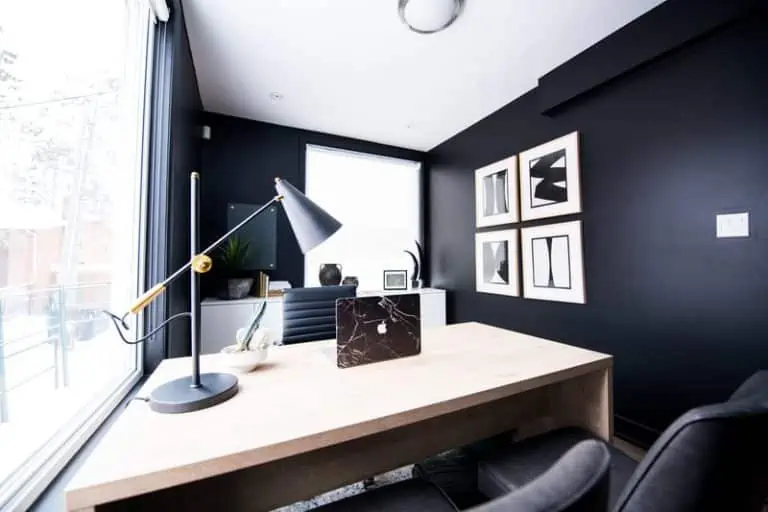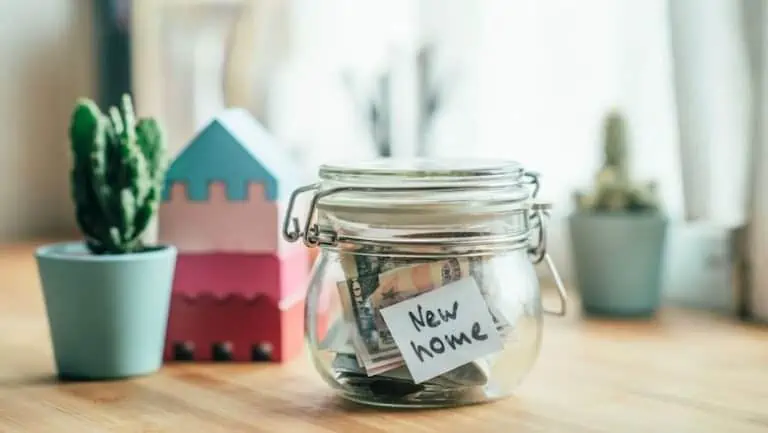Things to Consider When Buying a House For The First Time
Updated June 2022
Buying a house is a huge life-changing decision. It’s not just the cost but the commitment you’re making to yourself and your location. This decision becomes “right” for people at different stages in life, and you should never compare your situation to anyone else’s. Buying a home is purely about what is suitable for you and where you’re going in the future.
Here are some reasons for buying a house and things to consider before you take the leap.
Reasons to Buy a House
These reasons are broken down into the categories that everyone should use when determining if homeownership is the right thing to do or if they’re truly ready to take this step.
Financial reasons
- Do you intend to stay in your current city for the foreseeable future?
- Is rent costing the same or more as a mortgage?
- Do you have enough to cover a downpayment?
- Are there viable areas in which to invest? Good school districts or up-and-coming neighborhoods with signs of future growth?
Physical
Sometimes what you need more than anything else in life is some space. A bigger place, more bedrooms, and room to host visitors, can all factor into the decision to buy a home.
Along with more space, however, comes more responsibility and higher bills. So, keep that in mind when determining the square footage you want or need.
Emotional
If you intend to live in your home for a long time, then buying a house becomes an emotional decision. A home is where you’ll settle in, make it your own, create memories and potentially pass the property down to your children.
Even if you don’t plan to live there forever, one of the perks of owning your place is that you can customize it how you like. Hence, the emotional factor. The space needs to feel like home. And anyway, a home should also be a place to unwind, destress and feel safe. All of these factors come into play when you are performing your search.
Things to Do and Consider Before Buying a House
No matter what is driving your decision to buy a home, it’s important to remain objective and clear-headed throughout the whole process. As a first-time home buyer, you should ensure you are well prepared for this step.
To get started:
Make A List
A home is a considerable investment, not just of your money but also your time. The first step is to know what you want and take your time figuring this out. This sounds basic, but make a list of:
- Must-haves
- Deal-breakers
- Things that are nice-to-have
Keep this list and update it as you go through your search. The more homes you visit, the more your list can potentially evolve and change. An example of some must-haves:
- A detached unit, two story max (more than that is a deal-breaker)
- Less than five years old (or as new as possible)
- Commute to work in less than 30 minutes, even in peak rush hour
- Open concept
- Walk-in closet in the master bedroom
- Laundry room on the second floor (or same as bedrooms)
- Location in a great school district (make re-selling easier)
Once you decide what you want, start to take a look at the different neighborhoods and what they have to offer. Once you narrow down the community you’d like and the budget, then look for homes in that area that fit the bill. While it’s good to see what your housing market has available for you, you don’t want to get stuck with FOMO and flag every home in your budget. Doing so will get you bogged down and confused by all the options available.
Your Budget
The Bank
Before you start looking, it is a good idea to speak with a loan officer at the bank you’ll be obtaining your home loan. They’ll help you calculate your debt to income-ratio and tell you how much home you’ll be able to afford. Generally, you want your monthly debt to be under 40% of your monthly gross income.
In addition, when you get pre-approved, you can ask the loan officer to help you compare interest rates and monthly mortgage payments tied to the different types of loans that are out there. Most people go with conventional loans, but there are also FHA (Federal housing administration) loans, VA loans (if you’re a veteran), and 5/5 ARM (adjustable-rate mortgage) loans.
Some loan types require a full 20% down payment of the purchase price. Others do not. However, if you put down less than 20%, you may get saddled with private mortgage insurance or PMI. This payment is an insurance policy the bank charges you to protect their loan.
Depending on your current debt, and the loan type you qualify for, the affordability of a home can change. To further complicate things, the interest rate you secure can also affect your monthly payment. All of this, plus closing costs and various other fees, must be considered when determining your budget.
New Home Expenses
Many people forget that the expenses required for buying a house don’t just end at the purchase itself. To clarify, new home expenses include:
- Professionally cleaning the home before moving in
- Changing the locks and making copies of new keys
- Transfer fees for services (e.g., waste management can charge to transfer an account to your name)
- Monthly bills that will be immediately due
The last thing you want is to be in a financial situation where you have no cash left after buying a house and then get stuck carrying a balance on your credit card to get through those first few weeks.
So, the moral of the story: when you find a home that you’re serious about, do the calculations to see what your mortgage will be, compare the monthly mortgage payments across the different loan types, including closing costs and fees, and then make sure you have enough for all of that and your new home expenses. If you don’t, then wait until you do.
Gather Documentation & Paperwork
Make sure you have all the necessary bank statements saved and ready to go for at least the last two months. In addition, collect paperwork showing your income, current debts, credit scores, and net worth. All this information is used during pre-approval and during Escrow (mentioned below) to ensure that you can handle the loan need.
For further detail on what you need to gather, check out First-Time Home Buyer Tips (What You Need to Know Before You Buy)
Get An Amazing Real Estate Agent
Your real estate agent should be someone you can trust and get along with well. A good real estate agent will have your best interests in mind, be honest, and be willing to teach you about your market. They will also help you successfully navigate the escrow process to ensure that things go smoothly.
Start The Search
To start house hunting, look at sites like Zillow or Redfin and see what’s out there in the neighborhoods of interest. If you don’t have an agent or are unsure where to begin, try to attend open houses. It’s an easy way to see a place, ask questions (there’s usually a real estate agent there to help) and get a sense of what is available in or around your price range.
Pro Tip: If you utilize a real estate agent, then don’t depend on them to give you the information. Spend time researching neighborhoods and finding homes yourself. Doing so allows you to research and gather information about your market. The more you know, the better decision you can make!
After Making An Offer
Now the fun really begins. Once an offer is accepted, you enter Escrow, a month-long process where you, as the buyer, and the bank perform due diligence on the property.
The first three days of Escrow are for you to transfer an earnest money deposit. The deposit is typically 1% of the purchase price, and is basically your claim to the property while the rest of the due diligence is performed. Other interested buyers cannot view the home once during this time.
Buyer’s Due Diligence
This is you! After the earnest money deposit is transferred, you have one week to complete due diligence or home inspection. This week is called the contingency period. Contingency allows buyers to hire a company to go in and take a deep look. Home inspectors will look at wiring, outlets, plumbing, appliances, etc., and send up red flags for anything that seems out of place.
In addition, it’s recommended that you do your own walk-through. Test everything, including the lights, the stove, and the toilets; look at the paint, and look for signs of damage. Ask the current owners for information on the history of home repairs, damages, etc. This is when you understand what the home has been through before you got there.
Anything found wrong is leverage for you to negotiate a lower sale price, or you can back out of the deal!
Remove Contingencies
If everything passes inspection and you’re ready to move forward, the bank will send you documentation to sign to “remove contingencies.” Once signed, you’ve agreed to move forward with the purchase, and your earnest money deposit gets included in the down payment.
If you decide not to remove contingencies, then you can get your deposit back and walk away. The only financial loss in this scenario is the money you spent on the inspection.
Bank’s Due Diligence
For the bank, this means assessing property value. They send an independent inspector and do their own calculations to figure this out.
If they decide that the house is indeed worth the asking price, you’ll get your loan. However, if they deem the house NOT worth the asking price (i.e., it’s worth less), you may not get approved for the loan you need. While rare, this can happen and is something to be prepared for.
Read Everything
Don’t sign anything without knowing what it is. In the era of Docusign, it’s easy to sign and not read the page. Take the time to scroll through and see what you’re dealing with. Mistakes can be made, and it’s better to find them beforehand.
After Escrow
That’s it! The bank will pay the loan you’ve gotten and set you up with monthly payments.
Some things to consider:
- Keep all of your hard copies of documents in a separate folder
- Keep all email communications with the bank in a separate email folder
- Update your new home address with the post office, your work, and family members
- Give yourself time before moving in to clean and change the locks
You’ve made your first home purchase, and it’s a big deal! Once you get your keys, take lots of pictures! Commemorate the moment and enjoy the new space you’ve worked so hard for.
Final Thoughts
Home buying, especially your first home purchase, can be very stressful and tedious, yet it can really add to your quality of life when you find the right one.
No matter what you decide to buy, a single-family, condo, or townhome, make sure that you arm yourself with the information you need to make the best decision on a home:
- Know your must-haves and deal-breakers.
- Speak with your real estate agent about the housing market.
- Gather all the information you can from your loan officer.
- Know what you can truly afford and have all the documents you need readily available.
Overall, make sure you are ready to take the leap and commit to being a homeowner!
Good luck!







